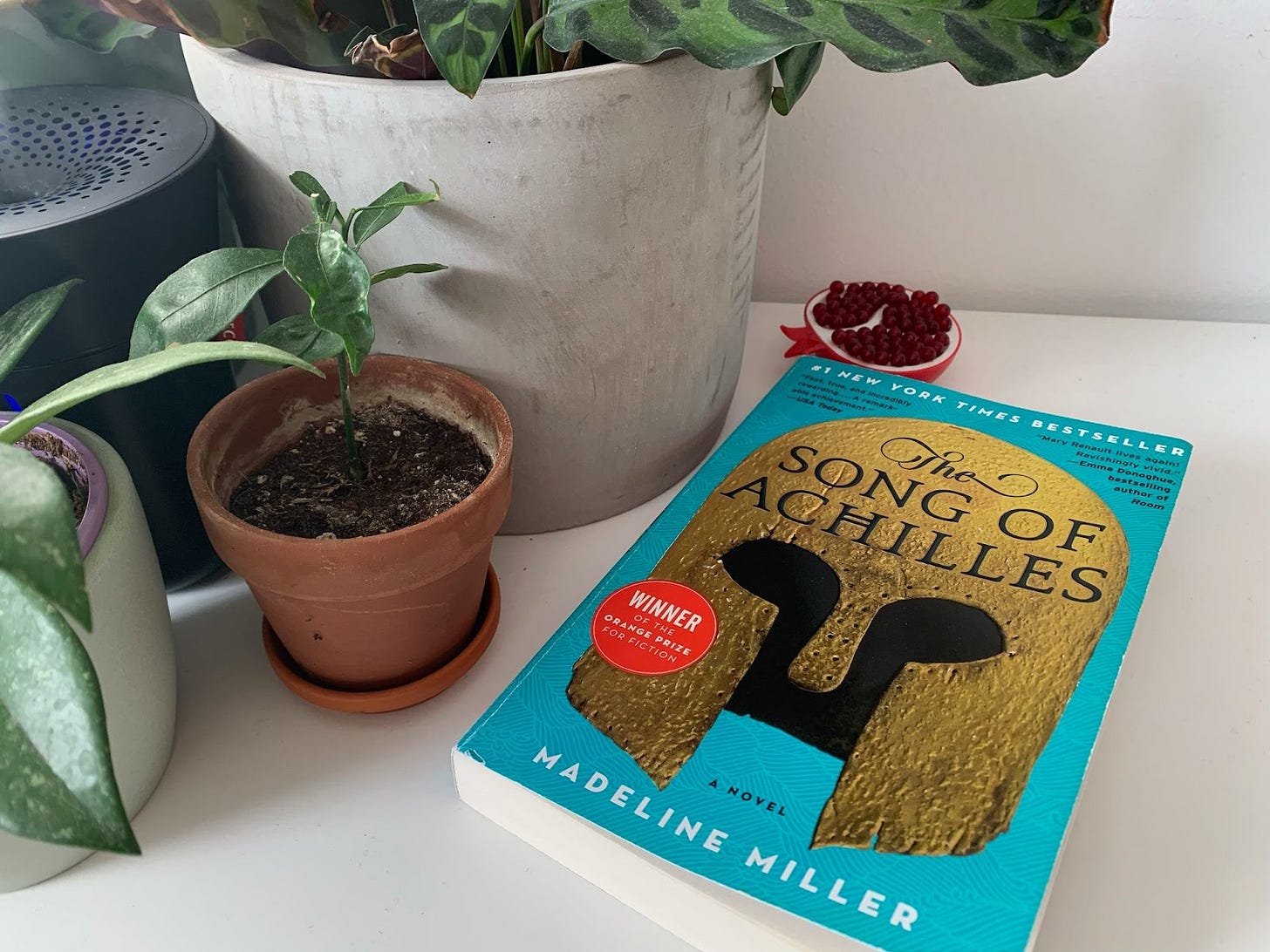January Recommended Readings
A retelling of the Iliad, decentralized cities, and predictions for 2050
The Song of Achilles by Madeline Miller
I read the Homeric epics, and related materials, in the least efficient possible order.
I began with James Joyce’s Ulysses. For everybody who’s not a literature major, Ulysses is a 1922 novel by Irish author James Joyce, and is considered a masterpiece of modern literature. It is the story of a random guy in Dublin going about his day; but hidden in the structure of the book are parallels with Homer’s Odyssey, the epic about the travels and homecoming of Odysseus after the Trojan War. “Ulysses” is the Latinized version of Odysseus, and each chapter of the novel is a metaphorical allusion to an episode in the epic, although never explicitly stated as such.
Unfortunately, when I read Ulysses I had only fragmentary knowledge of the Odyssey. I vaguely knew about the Cyclops or the Lotus Eaters, but not much more, and I must have missed a lot of the novel’s literary value. I thank whoever wrote the Wikipedia page for helping me follow along.
Some years later I decided to read the actual original text. I bought a copy of the Odyssey, and enjoyed it, although I was surprised to learn that the adventures of Odysseus with the Cyclops and Lotus Eaters and so on are only a small part of the entire story.
Later still I read the Iliad. While the Odyssey is set right after the Trojan War, the Iliad is set towards the end of the conflict, and Odysseus is a character in both. They have a prequel-sequel relationship, and I read them in the reverse order.
The Iliad was also a more confusing read than the Odyssey. The plot is less straightforward; the characters are numerous, and it can be difficult to properly distinguish them, since Homer tends to assume his readers know who they are. For the longest time I mixed up the characters of Achilles and Agamemnon. I think it was the alliterative A. If you know anything about the Iliad, then you can see I must have been very lost.
I muddled through, though, and I’m glad I did. I got a much greater appreciation for Greek mythology, and also I now get to call myself a cultured person, since I’ve read the two Homeric epics!
Lastly, this past month, I read The Song of Achilles by Madeline Miller. It is a 2011 novel that retells the Trojan War, as well as the life of the hero Achilles leading up to it, from the perspective of Achilles’ companion and lover Patroclus.
The Song of Achilles is a good and popular book, and it enjoyed a burst of popularity last year when it became viral on TikTok. (I have to say, to maintain the air of intellectualism I gained from reading Homer, that I don’t use TikTok and my decision to read it was entirely unrelated.) In particular, the focus on Achilles and Patroclus’ relationship was interesting and far more developed than in the Iliad. In an interview, Miller said, “I had been intensely frustrated by a number of articles I had read that kept sidestepping the love between [Patroclus] and Achilles, which to me felt so obviously at the story’s heart.” This love truly is at the heart of The Song of Achilles.
Reading this book made me gain a much deeper appreciation for the characters in the classic story. Miller fleshes them out much more than Homer does, or perhaps the clarity of her prose makes it far easier for them to take life in my head. They do not feel like distant mythological characters acting as pawns in a complex tale spun by gods, but like real people, with backstories and feelings and goals. Now I don’t mix up Achilles and Agamemnon anymore. It even seems silly to have ever mistaken the young, attractive, divinely talented warrior with the irascible and authoritarian general of the Greek army.
I wouldn’t say that The Song of Achilles is a perfect book — it never quite reached the point where I was excited to read it — but it is an enjoyable one, bringing Greek mythology to life in a way that the original texts don’t, with beautiful, digestible prose where Homer gives us rhythmic but heavy verse.
Thus I recommend a reading order that is the exact reverse of mine. Start with The Song of Achilles, or some other contemporary book, perhaps Miller’s second novel Circe. Then move on to the Iliad proper, followed by its sequel, the Odyssey, both of which will be more fun if you have a clear image of the characters and plot beforehand. At that point, read Joyce’s Ulysses if you must, but frankly, it’s probably better to do like everybody else and just pretend you’ve read that one.
Around the Web
A brief history of decentralized cities and centralized states by Jon Hillis from Creator Cabins. Pairs well with last month’s issue on decentralization.
Where’s Today’s Beethoven? An investigation of why innovation is currently stagnating in the arts and sciences. The golden age hypothesis is discussed, and the author and some skepticism as to how much of a golden age ancient Greece actually was: “Ancient Greece is best interpreted as an isolated spike in demand and effort at innovation, not a spike in exceptional intelligence or knowhow.”
Inspired by a post by Erik Hoel from last August, the authors of Slime Mold Time Mold have made predictions for the year 2050 by extrapolating current trends, and are compiling a list of similar posts by various bloggers. Some I like: Strange Loop Canon, Roger’s Bacon, Sasha Chapin.



